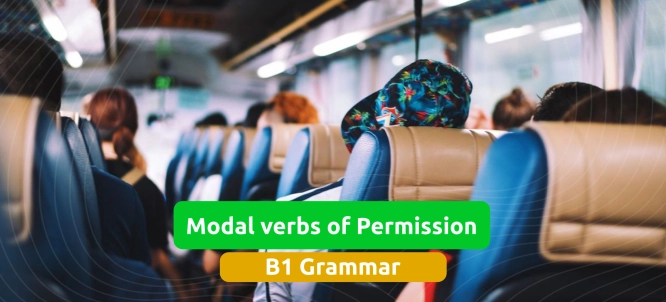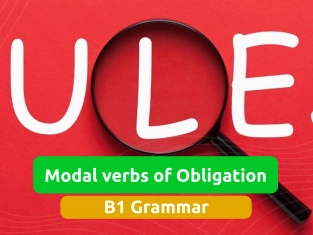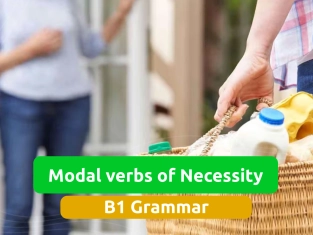by PushtoLearn
Modal verbs of Permission
Table of Contents
Modal verbs of Permission Exercises
These exercises focus on Modal verbs of Permission
What Are Modal Verbs of Permission?
Modal verbs of permission are words used to:
-
Ask for permission (e.g., "Can I use your pen?")
-
Give permission (e.g., "Yes, you can.")
-
Deny permission (e.g., "No, you may not.")
The most common modal verbs for permission are:
-
Can
-
Could
-
May
Each of these has its own tone and usage. Let's look at the details.

Rules for Using Modal Verbs of Permission
Here are the rules to help you use these modals correctly:
1. Using 'Can' for Permission
-
Function: To ask or give permission informally.
-
Examples:
-
Asking: "Can I borrow your book?"
-
Giving: "Yes, you can."
-
Denying: "No, you can't."
2. Using 'Could' for Permission
-
Function: To ask for permission politely.
-
Examples:
-
Asking: "Could I leave early today?"
-
Giving: "Yes, you could." (Though rare; 'can' is more common in answers.)
Tip: We use "could" mostly for asking, not giving permission.
3. Using 'May' for Permission
-
Function: To ask or give permission formally.
-
Examples:
-
Asking: "May I sit here?"
-
Giving: "Yes, you may."
-
Denying: "No, you may not."
Common Errors with Modal Verbs of Permission
-
Confusing 'can' and 'may'
-
Incorrect: "Can I go to the bathroom?" (This is informal but widely accepted.)
-
Correct: "May I go to the bathroom?" (This is formal and preferred in polite situations.)
-
Using 'could' incorrectly for giving permission
-
Incorrect: "You could borrow my car." (Sounds like a possibility, not permission.)
-
Correct: "You can borrow my car."
-
Overusing 'may' in informal contexts
-
Incorrect: "May I play video games now?" (Too formal for casual conversation.)
-
Correct: "Can I play video games now?"
To learn more about Modal Verbs including Past Modal Verbs, have a look at these lessons: Modal verbs of Prohibition, Modal Verbs of Deduction, Modal verbs of Necessity, Modal verbs of Obligation.
Everyday Use of Modal Verbs of Permission
Here’s how you can use modal verbs of permission in real life:
|
Situation |
Ask Permission |
Give Permission |
Deny Permission |
|
At school |
"May I go to the library?" |
"Yes, you may." |
"No, you may not." |
|
At work |
"Could I leave early today?" |
"Yes, you can." |
"No, you can't." |
|
At a friend's house |
"Can I use your charger?" |
"Sure, you can." |
"Sorry, you can't." |
Tips for Mastering Modal Verbs of Permission
-
Use 'can' for informal situations (with friends and family).
-
Use 'may' for formal situations (at work, with strangers).
-
Use 'could' when you want to sound extra polite.
-
Avoid overcomplicating sentences—stick to short and clear phrases.
FAQ on Modal Verbs of Permission
What is the difference between 'can' and 'may'?
'Can' is used for informal permission, while 'may' is used for formal or polite permission.
Is 'could' used for giving permission?
'Could' is rarely used for giving permission. It is mostly used for polite requests.
Can I use 'can' in formal writing?
It's better to use 'may' in formal writing or situations to sound more professional.
What is the negative form of 'may'?
The negative form is "may not." Example: "You may not enter the room."
Which is more polite: 'could I' or 'may I'?
Both are polite, but 'may I' is slightly more formal than 'could I.'

